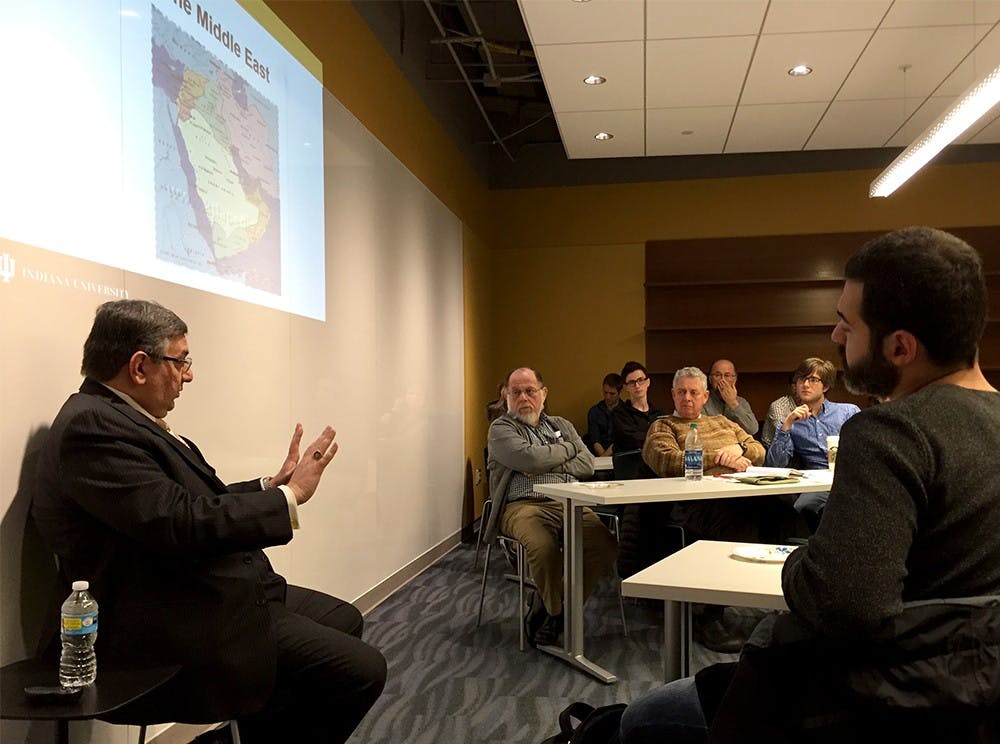IU professor and former ambassador to Iraq Feisal Istrabadi said the United States cannot effectively “kill the ideology” of radicalized Islamic beliefs.
The topic was discussed by Istrabadi after a question surrounding the ISIL strategies of the U.S. Republican candidates was asked at a lecture Wednesday afternoon in the School of Global and International Studies.
Bombing the area, Istrabadi said, is a fruitless endeavor to restore peace and unity to the region.
His presentation was titled “State in Flux in the Middle East.” Istrabadi, the founding director of IU’s Center for the Study of the Middle East , portrayed the lack of stability in the region via borders and diplomatic power.
He also mentioned the current state of ISIL. Istrabadi said that the violent terrorist organization is crossing the borders of countries such as Syria and Iraq, among others, causing them to be in flux.
Throughout the presentation, Istrabadi said he believes there is sympathy for ISIL in Jordan. However, he would not comment on the percentage of ISIL supporters in the country, but explained that Jordan’s poverty conditions have contributed to it being “in play for ISIL,” as the country has very little resources in its geographic area.
“We must create the circumstances where the thought (of joining ISIL) is not necessary,” Istrabadi said.
Istrabadi spent a significant portion of his time on the Kurdish groups that inhabit the Middle East . He anticipates that there will be multiple Kurdish independence groups if they successfully break away from their respective countries .
He illustrated the relationship between the Kurdish Democratic Party and Patriotic Union of Kurdistan in Iraq, saying that, in order to travel within the two Kurdish borders in the country, citizens will be subject to vehicle searches and identification checks .
Despite constant tension in the area, Istrabadi said the majority of Middle Eastern citizens have a sense of state nationalism and resiliency of post-World War I disposition. The longtime Bloomington native said unity is a challenge for Shia groups in Iraq because each group wants to govern themselves.
One of the principal legal drafters of the Iraqi interim constitution in 2003, Istrabadi earned his doctorate from IU in 1988.
After completing his education, he served as a legal adviser to Iraq’s Minister for Foreign Affairs while the country reasserted itself through its sovereignty.
Istrabadi’s lecture was the second presentation in the Global Center’s Global Studies Positioning Series for this semester. The first lecture of 2016 was given by Dr. Fred Cate, IU law professor and the University’s Vice President of research.
Cate’s presentation was focused on Cyber-security and Changing Notions of Power.






